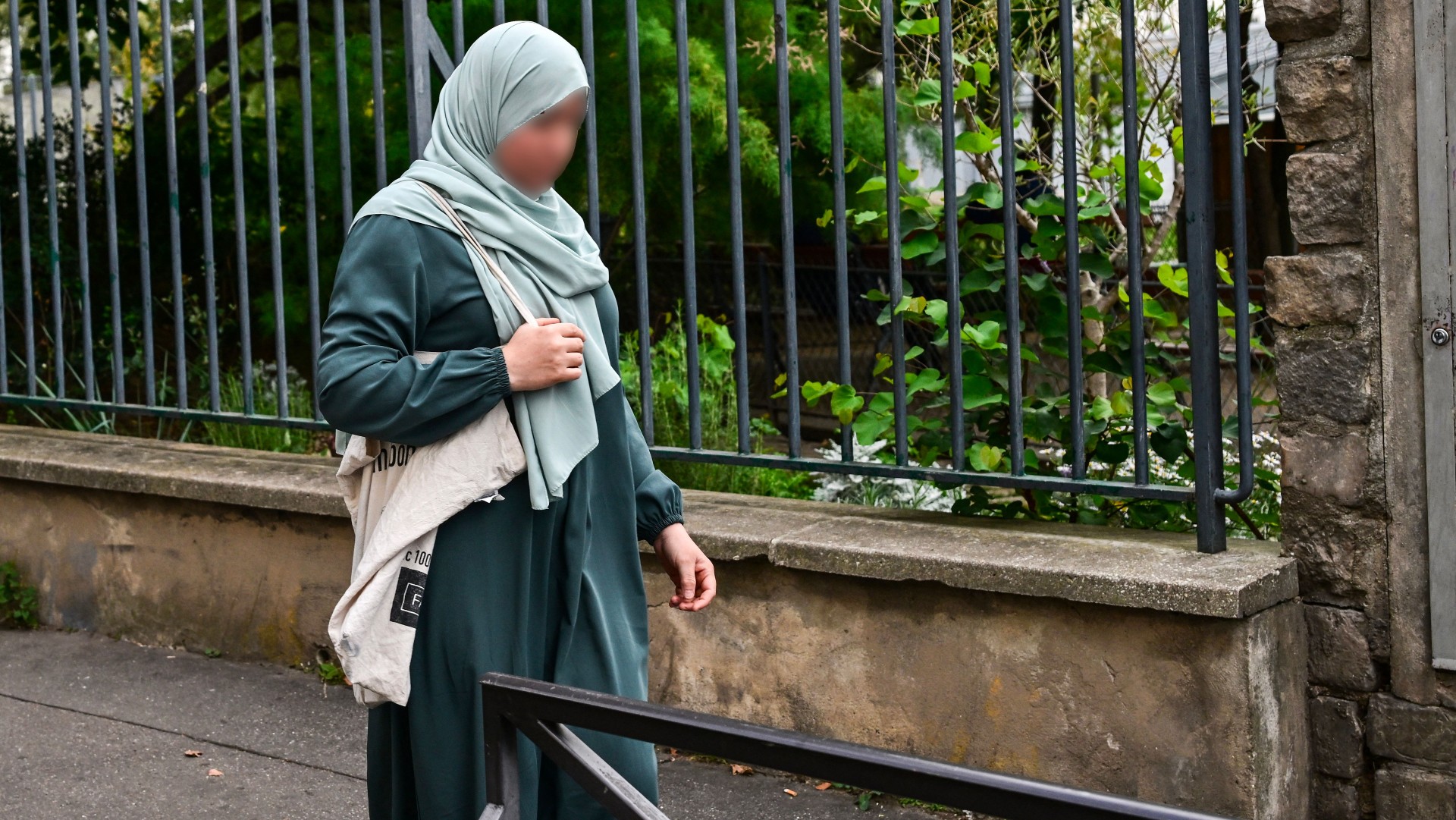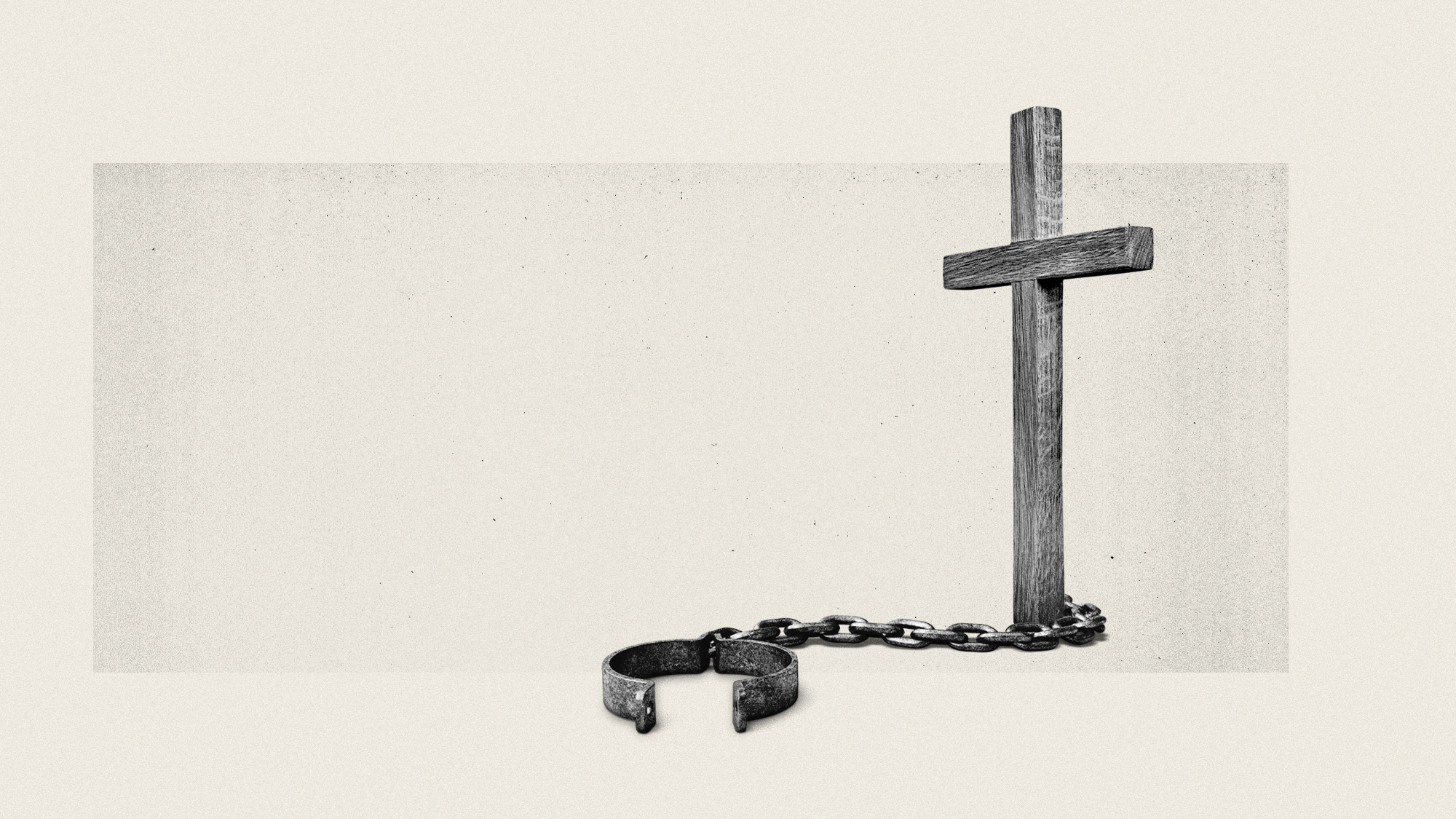France’s abaya robe ban in schools: overreach from the state?
A move denounced by Muslim leaders, but welcomed by the far right, and head teachers

A free daily email with the biggest news stories of the day – and the best features from TheWeek.com
You are now subscribed
Your newsletter sign-up was successful
The abaya has “no place in schools”, according to France’s education minister, announcing a ban on the loose, dress-like garment in state schools.
The clothing, popularly worn in many Gulf and Middle East countries, is “a religious gesture”, Gabriel Attal told French TV channel TF1. The ban, which will come into force at the start of the school year on 4 September, is in line with “laïcité” (secularism), a cornerstone of French policy, he said. “When you walk into a classroom, you shouldn’t be able to identify the pupil’s religion just by looking at them.”
The move comes after “months of debate over the wearing of abayas in French schools”, said France24. The right and far-right “pushed for the ban”, but many on the left argued it would “encroach on civil liberties”. The abaya robe is not “directly associated with Islam”, said Euronews, “as no text requires Muslim women to wear it”. Attal’s predecessor as education minister, Pap Ndiaye, “had ruled the abaya a grey area”, said The Times, “mixing cultural identity and religion”.
The Week
Escape your echo chamber. Get the facts behind the news, plus analysis from multiple perspectives.

Sign up for The Week's Free Newsletters
From our morning news briefing to a weekly Good News Newsletter, get the best of The Week delivered directly to your inbox.
From our morning news briefing to a weekly Good News Newsletter, get the best of The Week delivered directly to your inbox.
With the ban, Emmanuel Macron is “killing two birds with one stone”, said Clea Caulcutt for Politico. The president “sends a signal to the right and divides the left”, but also “risks opening a Pandora’s box”.
‘Obsessive rejection of Muslims’
France has enforced a ban on religious symbols in state schools since 2004, including Islamic veils or hijabs, Jewish kippahs and large Catholic crosses. In 2010, the country banned full face-covering veils in public, “angering some in its five million-strong Muslim community”, said Sky News.
But the abaya “is a form of fashion”, not a religious symbol, said Abdallah Zekri, vice-president of the French Council of the Muslim Faith. He was “surprised” that the abaya had “become a priority”, while teachers worried more about lack of funding and teachers.
France is “hypersensitive to the visible displays of religiosity, especially when it comes to Islam”, Haoues Seniguer, an Islam specialist at the Institute of Political Studies in Lyon, told The National. This ban is “a perfect example of a storm in a teacup”, and “contributes to creating a sense of moral panic”. It is “shocking” and “sexist” that “women are being told by men how to dress”.
A free daily email with the biggest news stories of the day – and the best features from TheWeek.com
The ban is “unconstitutional” and anti-secular, said Clementine Autain, deputy of left-wing opposition party La France Insoumise (France Unbowed). It amounts to the “policing of clothing”, and reflects the government’s “obsessive rejection of Muslims”. Jean-Luc Mélenchon, party leader, said the return to school was being “politically polarised by a new absurd form of war of religion”.
This ban is “going to hurt Muslims in general”, sociologist Agnes De Feo told Reuters. “They will, once again, feel stigmatised.”
‘A political attack’
The government spokesman Olivier Véran called the robes “a political attack”. They are an “obviously” religious symbol, he said: an attempt at “proselytising”, or converting people.
Until the start of this year, “my wife, a teacher in a state school in a deprived suburb of northern Paris”, said she had “never seen an abaya in her classroom”, wrote Gavin Mortimer for The Spectator. “Within weeks they became commonplace.” Although some are worn by body-conscious girls, “a way of concealing anxieties about their weight”, religion is “the main reason the abaya has taken off”. Its popularity spread on TikTok, “as part of a campaign aimed at challenging the Republic’s secularism”.
“To dismiss the abaya as a mere ‘cultural’ fad ... is to deny that it is an expression of adherence to a political Islam that pursues a hegemonic goal,” wrote Jean-Éric Schoettl, former secretary general of France’s constitutional council, in Le Figaro.
The far-right National Rally – “which typically keeps its distance from the Macron administration” – saluted the move, said Politico. Socialist and communist parties also welcomed the ban, “in line with the parties’ secular past”.
Public opinion is “firmly on the side of keeping state schools secular,” wrote Caulcutt. According to a recent IFOP poll, 77% of French people are “opposed” to religious signs in secondary schools, with just under half the population “very opposed”.
“We welcome it,” said Bruno Bobkiewicz, general secretary of the SNPDEN-UNSA union which represents head teachers. “The instructions were not clear, now they are.”
Harriet Marsden is a senior staff writer and podcast panellist for The Week, covering world news and writing the weekly Global Digest newsletter. Before joining the site in 2023, she was a freelance journalist for seven years, working for The Guardian, The Times and The Independent among others, and regularly appearing on radio shows. In 2021, she was awarded the “journalist-at-large” fellowship by the Local Trust charity, and spent a year travelling independently to some of England’s most deprived areas to write about community activism. She has a master’s in international journalism from City University, and has also worked in Bolivia, Colombia and Spain.
-
 How to Get to Heaven from Belfast: a ‘highly entertaining ride’
How to Get to Heaven from Belfast: a ‘highly entertaining ride’The Week Recommends Mystery-comedy from the creator of Derry Girls should be ‘your new binge-watch’
-
 The 8 best TV shows of the 1960s
The 8 best TV shows of the 1960sThe standout shows of this decade take viewers from outer space to the Wild West
-
 Microdramas are booming
Microdramas are boomingUnder the radar Scroll to watch a whole movie
